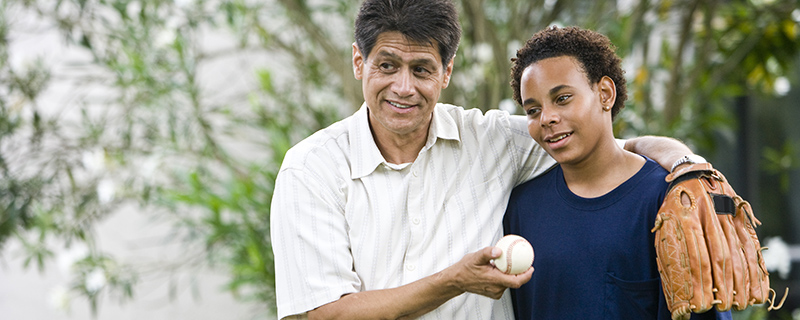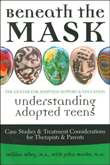
Adolescence is an exciting but often challenging time. For those parenting or working with adopted teens, it is important to understand how adoption adds to the complexities of the adolescent journey.
One of the major developmental tasks for all teens is to formulate one’s identity—to figure out who they are, where they come from, and who they want to be. A second equally important task involves moving toward independence and self-sufficiency.
“It’s not fair that I cannot know where I came from, where certain of my traits come from, or who I look like.” Rebecca
Many adoptive parents wonder if adoption will complicate their teen’s ability to navigate these normal developmental tasks. At the Center for Adoption Support and Education, adoptive parents ask: How will being adopted affect my son/daughter? Will being adopted create more challenges than teens typically face? Are the problems we are experiencing now because of adoption?
Research does suggest that adoption can complicate the normal developmental progression through adolescence. However, it is critical that we do not pathologize adoption! Instead, it is imperative that parents understand the impact of the unique losses and other adoption-related experiences on their teens and why specialized adoption-competent counseling and support may be needed.
Teens need their parents to join in their journey. To assist your understanding of the issues that your teen may be struggling with, in Beneath the Mask: Understanding Adopted Teens, I developed the “Six Stuck Spots,” common adoption-related issues where adolescents may get stuck. It is very common that teens move in and out of each area as they attempt to gain a deeper understanding of their adoption experience and search for identity.
Debbie Riley, L.C.M.F.T.
CEO, Center for Adoption Support and Education
To learn more about C.A.S.E visit www.adoptionsupport.org
Learn More
Featured Reading
 Beneath the Mask: Understanding Adopted Teens
Beneath the Mask: Understanding Adopted Teens
Debbie Riley, with John Meeks, 2006
Therapy solutions for adopted children aren’t just black and white. Working with adopted adolescents is complex. The key to successful therapy and healthy development is to help the adolescent discover and accept the person within. Therapists and clinicians will discover: a broad knowledge base on adoption, a step-by-step assessment process, clinical intervention strategies, a wealth of case histories, treatment resources and therapy tools, and writing and art therapy samples. Parents will discover the six most common adoption “stuck-spots,” the complexities of adoption, the adopted teen’s quest for identity, and how therapy may help the adoptive family learn and grow together.
Online Learning
Adopted: The Identity Project: Real People. Real Stories. Real Insight for Parents
Online course offered by Adoption Learning Partners
This course guides parents through a series of adoptee stories giving a unique view into the hearts, minds, and souls of the adopted person experience.
Is it An Adoption Thing?
Webinar offered by Adoption Learning Partners
Because many adoptive families struggle with the difficult task of sorting out if behaviors and challenges are adoption-related or not, we asked an expert to help! Dr. Gregory Keck discusses common challenges at each developmental stage and offers real life examples and suggestions.
Top 10 Things Adopted Kids Wish Their Adopted Parents Knew
Webinar offered by Adoption Learning Partners
Adopted people and adopted parents don’t always look at adoption the same way. Understanding your child’s feelings about adoption is essential, so how do you gain some insight? Our panel of adult adopted people discusses what they wish their parents had known.
An Insider’s Guide to Identity and Adoption: Real Life Stories. Expert Advice
Online course offered by Adoption Learning Partners
A guided discussion on the impact adoption has on identity formation. A panel of adult adoptees share personal stories from their childhood and teenage years, reflecting back on how adoption factored into their identity formation.
Finding the Missing Pieces
Online course offered by Adoption Learning Partners
It is natural for adopted children to grieve the life and family they never knew, no matter how old they were when adopted, how open the adoption, or how happy their life with the adoptive family. This course will help adoptive parents recognize the signs of grief at different developmental stages, identify situations that may trigger grief, and develop strategies to help children grieve.
Articles and Websites
Ambiguous Loss Haunts Foster and Adopted Children
North American Council on Adoptable Children, Adoptalk, Winter 2009
A Psychosocial Model of Adoption Adjustment
American Adoption Congress
by David Brodzinsky, Marshall Schechter and Robin Marantz Henig
Recommend an article or other resource
Please note: The Adoption Assistance Program (AAP) does not promote or endorse any websites, organizations or individuals that may be linked from this site. The AAP does not guarantee the accuracy of the information or the appropriateness of advice for a particular situation. It is our intent to assist users in their search for reliable and useful sources of information pertaining to adoption, legal guardianship, and parenting.